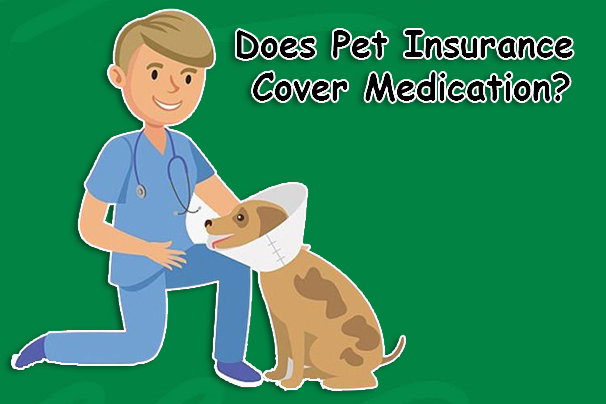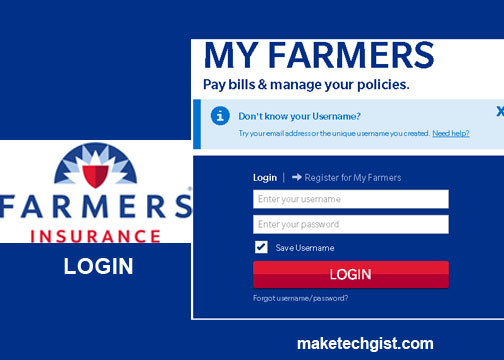Does Pet Insurance Cover Medication? Having a pet can be a fulfilling occupation, but it is not a simple task. Even if we’re only discussing the medical services our pets require, does pet insurance cover medication? Medication services involve various aspects such as vaccines, first spay/neuter, yearly examinations, unforeseen accidents or illnesses, and veterinary expenditures.

Yes, some pet insurance plans may cover the expense of medication if the veterinarian recommends treatment for a covered ailment. Understanding pet insurance coverage is crucial for making informed decisions about pet care and ensuring the best possible care without incurring significant medical fees. You may select a coverage that best fits your budget and your pet’s medical requirements by being aware of what is and is not excluded.
How Does Pet Insurance Medication Coverage Work?
Depending on the coverage prices, co-pays, and deductibles, pet insurance may or may not cover out-of-pocket prescription drugs. Medication provided for medical purposes is covered by accident and illness plans, but accident-only plans only cover medications related to accidents. However, health supplements are not available in conjunction with preventive drugs.
Also, operations like microchipping, spaying, neutering, and cosmetic operations are not covered. Providers do not cover pre-existing diseases as they manifest symptoms before enrollment or policy waiting period expiry. Furthermore, waiting periods for accidents are 2 to 15 days, and illnesses are 14 to 30 days, but orthopedic disease lasts longer.
Does pet insurance cover chronic medication and prescription medication?
To prevent dissatisfaction or disappointment when utilizing your plan, it’s important to recognize the difference between prescription and chronic medications. Most insurance plans cover prescription medications, which are administered for brief periods of time to address specific ailments like infections as well as injuries.
However, chronic drugs are used to treat long-term illnesses like diabetes or arthritis. Chronic medicine coverage varies greatly throughout plans. This is because some offer full coverage, while others have exclusions or limitations. Lastly, chronic drugs for pre-existing conditions are typically not covered.
Does Pet Insurance Cover Prescription Foods?
Certain pet insurance plans can cover prescription foods with prescription drugs. These specialty foods can aid your pet’s health, especially if they have chronic illnesses that call for a long-term dietary solution. Also, veterinarians recommend them for conditions including renal disease or food allergies.
Despite being less popular, prescription food insurance can be a useful supplement to pet insurance that will help both your pet and your pocketbook. Although these prescription diet items are not inexpensive, a policy that covers them can help lower their price.
Pet Insurance Medication Coverage Cost
For pets, particularly those with long-term illnesses, pet insurance can help lower the cost of prescriptions and ongoing drugs. To determine if an insurance plan can adequately cover pet medication costs, compare deductibles, co-pays, and deductibles. For instance, a plan that includes chronic medications can save you a lot of money over time if your pet needs daily medication for a chronic ailment. However, a plan with lower deductibles and higher deductibles can be more economical if your pet is healthy and just needs prescription drugs.
Pet Insurance Companies That Cover Medication
Pet insurance companies cover prescription medications, chronic conditions, and prescription food, but certain diets or higher-tier plans may limit coverage. Policies typically outline the medications covered and may only cover food or medication prescribed by a licensed veterinarian.
- ASPCA Pet Health Insurance.
- Embrace
- Healthy Paws.
- Many Pets.
- Figo.
- Pets Best.
- Spot Pet Insurance.
- Trupanion.
These businesses provide this coverage with sickness and accident insurance. Moreover, some provide prescription drugs as extra coverage or as part of a health insurance policy.
What Types of Medications Does Pet Insurance Cover?
Veterinarians typically provide pet medications under an accident and illness plan, provided the pet’s condition is not pre-existing. Prescription drugs required following an accident are covered under accident-only plans, provided that the treatment is connected to a covered incident. The following are common ailments in dogs and cats that need prescription drugs:
- Infections
- Allergies
- Arthritis
- Asthma
- Anxiety
- Cancer
- Diabetes
- Fungal infections
- Gastrointestinal disorders
- Glaucoma and other eye issues
- Heart health
- Blood pressure
- Kidney and urinary requirements
- Skin issues
- Thyroid conditions
What Types of Medications Does Pet Insurance Not Cover?
Pet insurance does not cover pre-existing conditions, non-covered cosmetic procedures, spaying or neutering, or any other non-covered procedures. Additionally, pet insurance would not offer coverage for the following:
- Vitamins
- Supplements
- Wellness products
- Prescription food
- Flea infestation medication
- Heartworm treatment
Additionally, the majority of comprehensive and accident-only pet insurance plans do not cover preventatives like heartworm, flea, and tick treatments. This is due to the fact that these drugs are considered regular care. These types of prophylactic drugs are covered by an optional add-on routine care plan.
Final Thoughts
Pet insurance will cover medication if your coverage covers the ailment for which the drug is given. Preventive medication necessitates additional coverage, while preexisting conditions’ medications are not covered. To ensure a comprehensive insurance policy, it is recommended to read the fine print and obtain quotes from at least three providers before enrolling.






